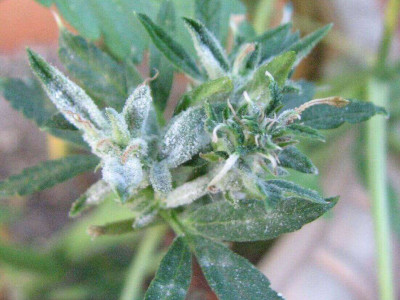0.00 грн.
CheckoutHow advances in research will change cannabis genetics in the future

The world of technology and science is developing at an incredible pace, and cannabis genetics is no exception. We have become accustomed to standard varieties that have been passed down from generation to generation. But imagine if we could precisely “program” a plant to produce a perfectly balanced chemical profile? How will advances in research change the approach to growing and using this amazing crop?
The current era of legalization of medical cannabis and industrial hemp in many countries has opened the floodgates for comprehensive, in-depth scientific research that was previously impossible. This means that hemp genetics and science now go hand in hand, creating a real revolution.
From guesswork to precision - a scientific breakthrough
For centuries, hemp cultivation was based on trial and error, i.e., traditional hemp breeding. Breeders mixed varieties in the hope of obtaining the desired characteristics: high yield, pest resistance, or a special aroma. Of course, this method has given us many wonderful varieties, but it has always been unpredictable and time-consuming. In the future, this process will change radically.
Genome mapping and the ideal cannabinoid profile
Thanks to the complete sequencing of the cannabis genome (cannabis sativa L.), scientists are able to accurately determine which genes are responsible for the production of specific compounds. We are talking not only about THC and CBD, but also about rare cannabinoids such as CBG, CBN, and hundreds of others, as well as terpenes, which give the plant its unique smell and taste.

Creating pharmaceutical strains.
Let's say your doctor prescribes a strain that contains exactly 12% CBD, 5% CBG, and a specific set of terpenes, and this is guaranteed, not “approximately.” This will become a reality when geneticists can use gene editing tools (such as CRISPR) to create plants with precisely defined properties. This will have a huge impact on genetics in the medical field!
Complete resistance.
Genetic engineering will allow the creation of strains that are completely resistant to the most common diseases (such as mold) and pests, making cultivation easier, safer, and more environmentally friendly by reducing the need for pesticides.
This is no longer science fiction, but the next stage in the development of agriculture.
New standards for producers and growers
How will this progress affect those of us who are interested in seeds? The changes will be felt at all levels.
The evolution of seeds
You already know how popular feminized cannabis seeds are. They solved the problem of identifying and removing male plants, ensuring that each plant would produce the desired yield. Or autoflowering marijuana seeds, which allow you to harvest regardless of the light cycle. These were the first big steps in genetics that made life easier for growers.
What's next?
Control of size and shape.
Geneticists will be able to develop strains that are ideal for specific growing conditions - ultra-compact for indoor growing or extra tall and hardy for outdoor growing.
Controlled activation.
In the future, we may see varieties that activate cannabinoid production only in response to a specific, controlled external stimulus. Can you imagine the level of control this would allow?
These technological changes will make cultivation more accessible and efficient. We will no longer have to rely on luck when choosing a variety. It will be possible to select a precise biological product with specified parameters.
Ethical and legal challenges
Of course, any powerful scientific progress raises serious questions.
Patent law. When geneticists create a completely new, “programmable” variety, who owns the rights to its genetic code? This issue is already being discussed in the context of other agricultural crops, and it will become very acute for cannabis.
Safety and control. A precise understanding of cannabis genetics requires tighter controls to ensure the safety and quality of the final product for the consumer, especially in the medical sector.
Summing up
Finally, we must emphasize a key point once again.
We have just talked about a future that promises incredible opportunities in cannabis research and cultivation. However, this progress is not happening everywhere at the same rate. We are not advocating the use or illegal cultivation of cannabis!
Today, in many countries around the world, THC-containing cannabis and its cultivation remain completely prohibited or severely restricted. Knowing the laws of your country is super important!
The future of cannabis genetics is bright and promising, but it must be responsible and legal. Stay tuned to be the first to learn about the latest scientific advances!


